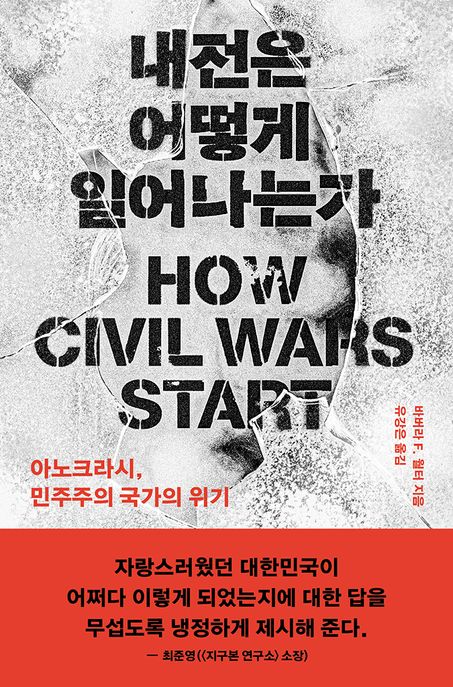
Theories of Violent Conflict: An Introduction
- 개인저자
- Jolle Demmers
- 발행사항
- New York, NY : Routledge 2017
- 형태사항
- x, 166 p. : 26 cm
- ISBN
- 9781138856400
- 청구기호
- 303.6 D382t
- 서지주기
- Includes bibliographical references and index
소장정보
| 위치 | 등록번호 | 청구기호 / 출력 | 상태 | 반납예정일 |
|---|---|---|---|---|
이용 가능 (1) | ||||
| 1자료실 | 00019246 | 대출가능 | - | |
- 등록번호
- 00019246
- 상태/반납예정일
- 대출가능
- -
- 위치/청구기호(출력)
- 1자료실
책 소개
This revised and updated second edition introduces students of violent conflict to a variety of prominent theoretical approaches, and examines the ontological stances and epistemological traditions underlying these approaches.
Theories of Violent Conflict takes the centrality of the ‘group’ as an actor in contemporary conflict as a point of departure, leaving us with three main questions:
? What makes a group?
? Why and how does a group resort to violence?
? Why and how do or don’t they stop?
The book examines and compares the ways by which these questions are addressed from a number of perspectives: primordialism/constructivism, social identity theory, critical political economy, human needs theory, relative deprivation theory, collective action theory and rational choice theory. The final chapter aims to synthesize structure and agency-based theories by proposing a critical discourse analysis of violent conflict.
With new material on violence, religion, extremism and military urbanism, this book will be essential reading for students of war and conflict studies, peace studies, conflict analysis and conflict resolution, and ethnic conflict, as well as security studies and IR in general.
This textbook introduces students of violent conflict to a variety of prominent theoretical approaches, and examines the ontological stances and epistemological traditions underlying these approaches. This 2nd editon has been fully revised and updated throughout.
목차
Introduction: conflict analysis in context
1. Identity, boundaries and violence
2. On love and hate: social identity approaches to inter-group violence
3. Violence and structures
4. Mobilization for collective violent action: multi-causal approaches
5. Rational choice theory: the costs and benefits of war
6. Telling each other apart: a discursive approach to violent conflict
Conclusions





